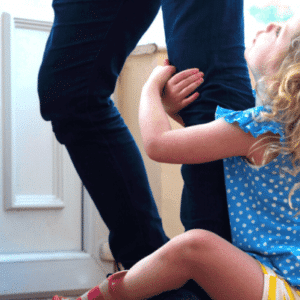I used to think of the cabin as a heartbeat—steady, quiet, always there when the city got too loud. My mother called it her “quiet house,” a cedar-scented pocket tucked between a maple grove and a creek that hummed even in January. After cancer took her three summers ago, she left it to me not as property, but as a promise. I kept her quilt folded on the sofa, her jar of dried lemon balm warming in the kitchen window, her chipped green mug waiting for blackberry season. I never brought Liam. He said it was too far, too cold, too offline. He liked electric fireplaces and late-night sushi deliveries; I liked woodsmoke sunk into flannel and the kind of silence that answers you back.
On a Tuesday that had already stripped me down—client tirade, stolen credit in a meeting, highway jammed for miles—I texted Liam: “Going to the cabin. Back by dinner.” No reply. I drove anyway, the trees loosening my shoulders as the pavement turned to gravel. His car was there—parked crooked like it belonged. He had never come before. Not once. I killed the engine and padded over the pine needles, breath fogging the window glass as I leaned to see inside.
He was on the couch. Shoes off. Beer in hand. Smiling. A woman—late twenties, legs tucked under her like a cat—laughed with her head tipped just so. He looked at her the way he used to look at me. I didn’t knock. I didn’t cry. I backed away and drove home with the radio off, palms numb on the wheel.
The next morning I bought three small cameras. One on the porch. One to the drive. One aimed into the living room through the window. “Security,” I told the mirror with a toothbrush hanging from my mouth. By Friday, the feeds told me more than I wanted. His car. Then hers—a different woman in a long red coat who slipped off her shoes like she’d done it before. A week later: another face. The rhythm was practiced—wine, soft voices, hands too comfortable to be new. Once a man came with them, a coworker by the look of him, treating my mother’s sanctuary like a private joke.
What made it snap into focus wasn’t the video; it was the notebook on Liam’s desk. I went in to steal a sweater and opened it without thinking. Not a journal. A ledger. Names, initials, ratings, notes that felt like bruises: “7/10 — good laugh, fun in the kitchen.” “8/10 — brings wine, stays late. Quiet.” A last page titled “Top Picks / Best ‘Getaway.’” I filmed the pages with a steady hand I didn’t recognize. I wasn’t angry then. Just hollow. This wasn’t sloppiness or temptation; it was a hobby.
I didn’t confront him. I cooked, kissed his cheek, asked about his meetings. He called me “unflappable,” like it was a compliment. When he suggested we “reconnect” at the cabin for a weekend—“No phones, just us”—I said yes.
We packed like newlyweds. He brought his favorite plaid. I tucked my mother’s quilt into the backseat and slid his black notebook beneath our wedding album on the cabin table. Let them stare at each other for a while, I thought. Dusk settled into the trees. I set the kettle on, opened a bottle of red, and placed my phone facedown—the living room camera feed running silent.
Gravel crunched at ten. The porch light washed the room in gold. A woman walked in as if guided by muscle memory and kissed his cheek. He smiled the same tired smile I’d watched on my screen for weeks. I stayed where I was.
“Make yourselves comfortable,” I said, voice slow as syrup. “The kettle’s on.”
They froze. He didn’t stand. His eyes jumped to the table, to me, to the shadow of the camera he couldn’t see. She blinked and set her purse down carefully, her smile shrinking without quite disappearing.
I laid a folded printout in front of him—his own handwriting, clipped from the notebook: “Quiet, good at hand-holding. 8/10.” “Best kitchen talk, stays late.” “7/10 — would repeat.” At the bottom: “We should keep this off the record.”
Color seeped out of his face. He made a sound like laughter without air. “You’re being dramatic,” he tried, and even he sounded unconvinced.
“Tell me something honest,” I said. “When you bring them here—when you sit where she used to knit, drink from her mug, sleep in her bed—do you picture me not knowing? Do you imagine this place is just a backdrop and not the last room where I can still hear my mother hum?”
He couldn’t meet my eyes. “It was… nothing,” he said finally. “Fun.”
“Not important,” I corrected. “Powerful.”
I slid an envelope across the table. Inside: a thumb drive with every clip, every entrance, every exit. He flinched before he touched it.
“You recorded me?”
“You recorded yourself. I pressed save.”
“I’m not here to humiliate you,” I added. “But you have a choice. I can deliver this to HR. To your team. To the partners of the women you brought here. Or you can tell the truth—all of it—and we decide if there’s anything left worth mending.”
He started the script men learn when the ground gives way. Therapy. Starting over. Promises stacked like empty boxes. I let him talk. It didn’t matter. That night he slept on the couch. I wrapped myself in my mother’s quilt and stared at the knot in the ceiling beam I’d stared at as a kid, the creek singing somewhere beyond the walls.
Consequences didn’t need my help. Rumors moved through his office on their own feet. Someone saw a printout. Someone else told a fiancé. HR “restructured” a team and forgot to include him. Meetings happened without him; invitations evaporated. He asked if I’d said anything. I hadn’t. He’d left a trail a mile wide.
I changed the cabin locks. Planted lemon balm in the window. Repaired the stove and painted the shutters a color my mother would’ve liked. When he texted—“Can I come up for a few hours? Please.”—I said no. Not ever.
Two months later he moved out, not because I screamed, but because there was nothing left to anchor him—no project to hide in, no audience to flatter him into forgetting himself. He packed a suitcase badly and offered counseling at the doorway. “I know,” I said, handing him a box of paperbacks. “But I won’t.”
A year is a strange distance—close enough to touch, far enough to see. He found a desk job downtown with peeling paint and no porch. Sometimes he texts apologies with no verbs. I don’t respond. The cabin is mine again in the way it always should’ve been—quiet that hums, not the kind that hides. I sit on the steps in the evenings with coffee cooling in my hand, listening to the creek untangle the day.
One afternoon I pulled the black notebook from the back shed. I built a small fire in the rusted burn barrel and fed the pages through one by one, watching ink blister and then let go. Smoke rose into the pines and disappeared. I swept the ash with my boot and sat until the air smelled like October again.
People imagine strength as volume. Mine arrived as quiet. I didn’t need to blow up his life; his choices were loud enough. I didn’t need revenge; truth did the slow, steady work. I used to pause at the curve in the lane and remember the version of me who felt thin and breakable, who would have mistaken keeping the peace for keeping herself. She’s gone. What’s left is softer where it matters and sharper where it counts.
Sometimes, when the porch boards warm under the afternoon sun, I hear my mother the way you hear a melody you thought you’d forgotten. “You did the right thing,” she says. I believe her. And in the hush that follows, the trees answer back.





